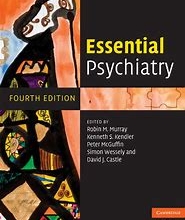Paul’s Personal Witness (I Timothy 1:12-20) | Mike Mazzalongo | BibleTalk.tv
– Okay, we continue in our
series for I Timothy, I Timothy for Beginners. This is lesson number three in the series Paul’s Personal Witness. I Timothy 1:12-20. Now, in our last lesson, we
began looking at the text of Paul’s first letter to Timothy. And in chapters one versus one to 11, we read about some of the
problems that Timothy was having and the things that Timothy had to do to counter those problems.
By the way, we have to understand that Paul didn’t write his letters with chapter and verse divisions
as we see in our Bibles. We sometimes think that
verse 14, and verse 15, were added later on. The letters in those days were like most writing of the times that had all capital
letters, little punctuation, no paragraph breaks, or
very few paragraph breaks as you see in the picture of the document that we’re showing you, the
Codex Washington-4th Century. The grammatical points in the
chapter and verse divisions were added much later when
the letters were collected into a complete set for publication. These made it easier
for the readers to find and memorize particular passages. Anyways, in verses one to 11, Paul sets out to accomplish
two important things in his communication with
Timothy, the young evangelist.
First thing, well first thing
is he establishes Timothy and his teachings as
legitimate and from God. We saw in the last week, we saw at the beginning of the letter, Paul introduces himself as
one who was selected by God. He’s an apostle. Not any apostle, not any messenger, but one of the apostles chosen by God. And Timothy is someone that he sent. And so there’s a chain of authority there from Christ to Paul, from Paul to Timothy, establishing the authority
of his role as apostle and teaching.
Timothy was a young preacher, and he was facing difficult
opponents in the church. And Paul wanted to back
him up, so to speak, with his apostolic approval. I mean, it’s so contemporary, isn’t it? I’ve been in the field doing
mission work in a small church that doesn’t have elders or deacons. It’s just a church that was just starting. Maybe 75-80 members, 100 members. And something would happen in the church. A problem needed to be resolved. And I, as the missionary,
would be part of a meeting where we would try to sort things out. But there were times when the elders who had sent me to do this work and who oversaw my work in the field, of them, either wrote
letters or came out to help me establish a
certain point of order or perhaps settle some divisive activity taking place in the church. In other words, the elders, and
this is many, many years ago when I was just starting in ministry, the elders would come
out and quote, back me up, support me.
Not just me personally, but
support what I was teaching was legitimately what the Bible taught when there was an issue as far as those things were concerned. So what Paul is doing here with Timothy, 2000 years ago, elders
have done with evangelists that they oversee in the
field over and over again. It’s a common thing. The second thing, also
what we read previously about the false teachers and the trouble taking place in Ephesus, Paul condemned the teachings
of those Gnostic teachers. They’re teaching straight
from apostolic teaching. Well, apostolic teaching
was the teaching of Christ because Christ gave it to the apostles.
The apostles passed it on if you wish. And so, Paul was condemning the teaching of these Gnostic teachers. And he was confirming or backing up that what Timothy taught, regardless of his age and experience, what Timothy taught was accurate and according to God’s word, according to what he, Paul, was teaching, and what Paul was
teaching was according to what the other apostles
were teaching as well. And so the apostle draws a
line in the sand as it were about approved teachers and teachings.
And once he’s done this,
he changes directions and offers a short prayer of thanksgiving before going on to tackle other issues that were taking place in the church, issues that required experience, issues that required Paul’s
input, Paul’s teaching, and Paul’s experience for young Timothy. Now Paul gave thanks to God not only for giving him the ministry
of apostleship in this prayer but also he thanks God for enabling him to do the difficult
work of an apostle. So he was thankful to
be chosen to serve God, and he was thankful for
having had the opportunity of serving God for many years
and in a very dynamic way. So let’s begin reading his prayer. In verse 12, he says, I thank
Christ Jesus our Lord, who has strengthened me, because
he considered me faithful, putting me into service. And so, Paul’s ministry comes from Christ who originally called him and has sustained him
through his many trials. Jesus called him to ministry. Jesus, through the Spirit,
through the church trained him.
Jesus through the spirit
of prophecy sent him out, Acts 13, to do that work, and Jesus sustained his
strength, his faith, and his courage while out in the field. Because he, Paul, as we know, especially if we read the book of Acts, sustained a lot of opposition, beatings, they tried to kill him,
and imprisonments. And through it all, he gives thanks that Jesus has sustained him through this. The false teachers were
claiming some kind of authority based on their knowledge
of secret information. And so Paul contrasts this by
explaining his relationship and knowledge of Christ who authorized and supported him in ministry. And he describes this relationship in the context of prayer. So basically he’s saying to Timothy, these false teachers here,
these Gnostic teachers, they have their secret knowledge, but I have a personal
relationship with Christ. They’ve appointed themselves
as rabbis, teachers of the law.
In my experience, Jesus has selected me. These false teachers
have been self-appointed to be the teachers. I have been appointed and sent
out to do the work of Christ by Christ himself. Always between the lines. He’s comparing his experience. He’s comparing his calling. He’s comparing his
teaching and all of that to that of the false teachers. You have to kind of keep
your eye on the ball as far as that is concerned.
This is what this is about,
especially in this section. Verse 13 and 14, he says, even though, in other words,
I was selected by Jesus. I was sent out to the field. He sustained me in my ministry. And then he says, even though
I was formerly a blasphemer, a persecutor, and
a violent aggressor. Yet I was shown mercy because I acted ignorantly in unbelief,
and the grace of our Lord was more than abundant
with the faith and love which are found in
Christ, in Christ Jesus. And so, his main point about this is that he did not
deserve to be an apostle. He didn’t boast. He was saying, look, I
was selected by Christ. I was taught by Christ. I was sent out by Christ. I was sustained by Christ. He’s not boasting about that. That just, that’s the way
his ministry has worked.
He’s not boasting about it. His main point is that he didn’t deserve to be an apostle. He didn’t deserve any of this. And he described who he used
to be before God called him. He was a blasphemer. In other words, he
denounced Christ as a fake and a troublemaker when
he, Paul, was a Pharisee. Well, that’s blasphemy. Some people think, if I
say this kind of things against the Father, that’s blasphemy, but if I say them against Jesus, well, that’s just trash talk.
No, Jesus is God. To speak against him,
to denounce him as fake, as a devil, as a troublemaker, and as a liar, is blasphemy. Because you’re charging the Son of God with these types of things. And he says, that’s who I was. I was a persecutor. In other words, he was a tormentor and a hunter of Christians, and he tortured them and jailed them, and he even approved when
some of them were killed. We know that when Stephen was murdered he was there approving of
it and holding the coats. Go ahead. Throw another rock. I got your back here. I got your coat. And he was a violent aggressor. He was insolent and
insulting, aggressive, and angry with Jesus and his people. I mean, he was out to destroy the church. And so he said, this is who
he was when he met Christ. One who opposed the Lord violently and tried wholeheartedly
to kill and imprison Jesus’ people, Jesus’ followers. That’s who I was.
This is why he says he was
unworthy to be a leader, never mind to become just
a disciple of Jesus. That’s one thing. Jesus could have appeared to
him on the road to Damascus and said, it’s me. It’s Jesus. And Paul could have said, oh Lord. I’m sorry, I didn’t know. And he’s baptized, and
he becomes a disciple, and he kind of disappears into history. A brief mention of an
individual who was converted just like many was
converted at the beginning. We read about Lydia who was converted. And we read about her conversion, and then she passes out of sight. We don’t see her anymore. Just like many others. The jailer, the Philippian
jailer, and his family were converted, but then
we don’t see them anymore.
Well, it’s in the same way. Paul could have been converted and just pass on through,
and we don’t see him anymore. But that’s not the case, is it? Jesus not only appeared to him, not only called him to be a disciple but allowed him
to be a leader in the church. This is why Paul is saying, hey, I may not even have deserved
to become a Christian. I was such a bad person. I was called to be a
leader on top of that. And so, despite all of this
he says, God had mercy on him because he did all of
these things in ignorance. He didn’t know.
I’m wondering if when Jesus
said, Father forgives them for they know not what they do he wasn’t also talking
about Paul at that moment. Now, even though he was ignorant and trying to please God in his way, he was still sinning. He was guilty of sin even if
he didn’t realize it then. Remember, the law of sin and death works whether you agree with it or not.
The spiritual law that
says, if you sin you die. That law is universal. It doesn’t matter if
you agree or disagree, that law, like gravity, is in play. And so even though he did
what he did in ignorance, and he was very zealous
thinking he was pleasing God, he was still sinning. He was still lost. He would have been condemned. But God showed him
mercy by sending someone to preach the Gospel to him, not by simply accepting
his zeal or sincerity. No, no, like everyone else,
Paul had to hear the Gospel and respond to it. Sincerity and zeal do
not wash away our sins. It’s the blood of Christ
that washes away sin, and this is done of course
in the waters of baptism as Ananias in Acts 22:16. He preaches the Gospel to Paul,
but then what does he say? Saul, Saul, why do you await? What are you waiting for? Rise, be baptized,
and wash away your sins.
So Paul, like everybody else, from Pentecost until the end of the world, like everyone else, Paul
had to hear the gospel, and then needed to respond to it in faith. And that faith expressed how? In repentance and baptism. And of course, Paul did that as well. So God’s love and mercy was
shown to Paul in several ways. First of all, Christ
came to die for his sins. The preacher who baptized
me many, many years ago used to say, and I don’t
know where he got this, but he used to say, even
if you were the only person in the world, here’s the whole Earth, and you’re just one person
that’s living on the Earth, Christ would have come
and died just for you.
He died for everybody, but if
there was only one human being, he would have done the same. I mean, the analogy doesn’t
work in every which way, but you understand the point I’m making. The salvation that Jesus
obtained by his sacrifice is not just for a group of people. It’s for each
person who responds to him. So Christ came to die
for Paul’s sins as well. Secondly, God kept him alive
to show him the ministry and the blessings that
would be given to him. He could have been killed before then. And while he was serving Jesus
he could have been killed. They tried to kill him
many times by stoning him. They chased him out of one
or two different cities, three different cities
that I can think of. And yet, even though he
was injured many times, and he was cold and
hungry, and so and so forth, they never managed to kill him. God spared his life. And thirdly, God gave him the ministry of announcing the Gospel, the good news to everyone that was seeking him.
So God gave him the ministry. And so this grace, and
the faith, and the love with which it was offered and received was sufficient to save him and
reset the course of his life. Now, what is unsaid is
that he didn’t need secret or special knowledge to gain
these things in his life. Remember I said, keep
your eye on the ball here on what this is about,
the Gnostic teachers. And so, he, Paul, who was who he was, was called by God through the Gospel. Jesus died for his sin. God kept him alive. God gave him a ministry. Notice, no secret knowledge there. Everything is out in the open. He was called in the same
way that all other people are called to believe, and
repent, and be baptized. And so in verse 15, he says
it’s a trustworthy statement, deserving full acceptance
that Christ Jesus came into the world to save sinners, among whom I am foremost of all.
So here, in this passage here, Paul quotes one of the many quote sayings that were circulating in
the church at the time. We have sayings in the church, right, that do not necessarily quote from the Scripture. I mean, they express
ideas in the scripture, but they do not have exact quotes. Like Jesus is Lord. Jesus is Lord. Or what would Jesus do, right? What would Jesus do, that’s
a good idea, of course. When faced with some
decision or some situation, you ask yourself, well,
what would the Lord do? That’s a thing we have. That’s a saying we have. It’s not specifically in the Bible. There’s nowhere in the
New Testament, for example, where a Bible character, an apostle, or somebody says, well,
what would Jesus do? Okay? Well, in the same way, one of
the sayings of that time was, that Christ came into the
world to save sinners. That was a saying that was going around. So Paul quotes the saying,
and he confirms it as true when he compares this
saying with his own life.

In other words, he is the
epitome of this saying. Okay, he’s saying, look,
it’s a trustworthy statement. That’s the saying. Deserving full acceptance,
because it’s true that what? Christ came into the
world to save sinners. That saying is going around. And you know what? That is so true because look at my life. I was the worst of sinners,
and Christ came to save me. And then in verse 16 he says, yet for this reason, I found mercy, so that in me as the foremost,
and in brackets, sinner, okay, Jesus Christ might
demonstrate his perfect patience as an example for those who would believe in him for eternal life.
So not only is this saying true, he says, and true about him in particular, Paul says that he should be
the poster boy for this saying so others like him could
have confidence in God. The idea is that if God can forgive me, the chief sinner, look at what I did. I tried to stop and destroy
the work and the people of God. So if God can forgive me,
then he can forgive anybody. That’s the point of this passage. Should be very encouraging
to those who were thinking, oh, I’m just too sinful. I’m just too bad a person. God doesn’t want me. And you know, interesting,
he’s saying this here to reach out to those people who may be thinking
this about themselves. This is 2000 years ago, and yet even today, I’ve
heard that many times. People that I’ve studied with say, well, God doesn’t want me. I’ve had such a bad life. I’ve done so many things wrong. I’m a lost cause. And Paul is saying, look
if God can forgive me, the worse of sinners, he can forgive you, and that is still true, very true today.
Well in verse 17 we have
what’s called a doxology. It says, or he writes, now to
the King eternal, immortal, invisible, the only God, be honor and glory forever and ever. Amen. A doxology is a spontaneous praise. So here Paul is so
overwhelmed with thanksgiving, at the thought that he,
the terrible sinner, was saved and called by God and given this fantastic ministry. He’s so overwhelmed by everything that he breaks out in
spontaneous praise to God. He says very specific things that we believe God to be, right? He says that God is eternal. He’s without beginning or end. He says that God is immortal. In other words, He’s not subject to decay. And he is invisible. Meaning, he’s spiritual. He’s a spiritual being. Such a being deserves, he
says, honor and glory forever.
Why? Because no one else is worthy
of this kind of praise. Have you never said that in your prayers? Only you, Lord, are worthy of grace. Only you, God, are worthy
of honor and praise. I mean, such a statement. Who else is worthy of praise and honor, obedience, devotion, and adoration? Is there anyone or thing
that is worthy of that other than God? And the answer, of course, is no. Only he is like this. So Paul kind of, he’s saying to them, this is how I came to Christ. I didn’t need secret knowledge. God found me. God preached the Gospel to me. God gave me a ministry. No secret knowledge there. And then when he contemplates the wonder that God has given to him,
he breaks out in praise and describes some of the features and the features of
God’s character and person.
Now, in the last part of this chapter, Paul kind of renews his charge to Timothy. So we go to verse 18, and he says, This command I entrust
to you, Timothy, my son, by the prophecies previously made concerning you, that by them you fight the good fight. And so the charge or the mission was originally given to Timothy based on what the Holy Spirit said about him through the prophets in the church. Remember, in those days, they
didn’t have the written word, but they had individuals who
had the gift of prophecy, the ability to speak for
God, if you wish, alright? So in the early churches, I said, those with the gift of prophecy
served to guide the church until the Bible was
completed, recorded, and eventually distributed. We read about that in
Ephesians chapter four verses 11 and 12. So Paul reminds Timothy that
since he was chosen in this way he should have the confidence to enter into the battle against the false teachers.
Again, he doesn’t mention
the false teachers, but it’s about the false teachers. The false teachers have
appointed themselves. The false teachers are
declaring the authority based on themselves. When he talks about Timothy, he says, but you Timothy, you’ve been selected through the agency of prophecy. In other words, the Spirit
speaking through the prophets in the church called
you out as an individual for the ministry that you have. That’s your authority. That’s your calling. And he’s kind of telling
him, remember who you are.
Remember how you have been called. Remember the authority that’s
been given to you by God through the prophecy
of those in the church. And so, if God chose him for ministry, well then God will be
with him in ministry. I’ve said it many times. If God calls you to a ministry, he’ll provide what you
need for that ministry. He doesn’t just call you
and then leave you alone, doesn’t provide you with anything. If he calls you to ministry, he’ll provide for you in ministry. Verse 19, the first part, he says, keeping faith and a good conscience. So Paul now explains
the strategy one needs to be able to
fight that good fight in the name of the Lord. And the first thing that you need is you need to keep the faith. In other words, maintain,
and preserve the faith. Not just faith, like continue believing. That too. But in this case, keep the faith. Meaning, the doctrine, the teaching. Keep that, preserve that from
one generation to the other. So as an evangelist, the
way you fight the good fight is to make sure that you maintain
the teaching of the Gospel.
You maintain it in your heart, and you maintain it in your teaching. Keep preaching and arguing
for Christ-centered doctrines. Keep believing these and encourage others to continue believing these. And then the second thing he
says, keep a good conscience. Faith and moral standards,
go together. If your morals fall, your
faith won’t be far behind. You can’t remain faithful or
be effective in helping others to remain faithful if your
moral life isn’t good.
Peter says we need to add to
our faith moral excellence. Second Peter chapter one verse five. Many times false doctrine
or falling away from Christ is preceded by a moral decline. We do something wrong, we do something, we’re engaged in some secret
sin, and so on, and we begin diluting the doctrine and the teaching to be able to
cover what we’re doing wrong. Does God say that that’s bad? Is God going to punish us for that? We have to keep a good
conscience, a clear conscience. And so Paul continues in verse 19b. He says, which some have rejected, keeping the faith,
keeping a good conscience, keeping good doctrine. He says, some have rejected this and they’ve suffered shipwreck
regarding their faith. Among these are Hymenaeus and Alexander, whom I have handed over to Satan so that they will be
taught not to blaspheme. So Paul gives examples
of those in the church who have rejected these principles.
Keeping faith, solid doctrine, maintaining moral excellence. He mentions a couple that
has rejected these principles and has ruined their
faith as a consequence. And he mentions two men, Hymenaeus who is described
in Second Timothy 2:17. So we’ll read about him later
when we get to Second Timothy. And his brother Alexander. And just to be clear, not the blacksmith that’s mentioned in Second
Timothy four verse 14. So these two individuals
he’s talking about. So Paul says that they
were delivered to Satan, which is a figurative way of saying that they were disciplined. We use terms like that today, don’t we? Like, man, I took a beating
on the stock market. It doesn’t mean that you were physically beaten, right? It means you lost money.
Or my computer crashed. Well, it doesn’t mean it
hit the floor and broke, although, that might be
what you’d like to do to it. But we use euphemisms. We use metaphors, and terms to
describe a certain thing. Well, there are a lot of reasons and ways to be disciplined in the church. For example, public immorality, which Paul talks about that in
First Corinthians five.
There was incest. The man had his father’s
wife if you wish. And the punishment there was to withdraw from that individual so he
would recognize his sin. Heresy or causing division,
teaching false things or creating division in the church. Again, in Romans 16:17, Paul talks about withdrawing from those people. Always withdrawing fellowship to point out the error of their ways. Idleness and gossip, Paul talk about in Second Thessalonians three.
People not working on purpose and meddling in other people’s lives. Again, the way to discipline
them is to withdraw from them. He talks about those who are disobedient. They will not obey the scriptures, or they rebel against legitimate
leadership in the church. Again, to withdraw from those people, to warn them, and to withdraw from them. Those who show a party spirit. I don’t mean parties like having a party. Meaning, competition for leadership, rounding up a pose to kind of prove your point, and dividing the church up in this way. Usually competition for
leadership in the church. In Titus chapter three, which we will get to in a little while, Paul says, give those
people who are doing that two warnings, and if
they don’t pay attention, withdraw from them.
Here it says three. My notes say two. Now, in the case of these two
brothers that he’s mentioned who blasphemed, in other words,
they spoke with disrespect concerning God or concerning
sacred ideas or things, his word. In their case, it was
promoting false doctrine over the Gospel. So turning over to Satan or discipline likely means they were withdrawn. If the church withdraws from you, and you don’t have the
fellowship of the church, who do you have fellowship with? Well, you have fellowship with the devil ’cause there are only camps. There’s the kingdom of darkness
and the kingdom of light. So if the kingdom of
light withdraws from you, you’re in the kingdom of darkness.
And when you’ve withdrawn, this means that you can’t enjoy the fellowship with other Christians, or the blessing of hearing God’s
word, sharing communion, worshiping, and other activities, and spiritually strengthening activities that the church is involved in. Jesus said, you’re either with
him, or you’re with Satan. So if you’re separated from Christians, you’re separated from Christ, then that puts you with Satan
whether you like it or not. So there is a discipline in the church, and there’s a discipline
for a variety of reasons and a variety of ways. My thing has always been,
that we need to make sure that we use the right type of discipline for the various types
of sin or disobedience that are causing problems.
And so, Paul continues his
encouragement of Timothy. Number one, he encourages
him to fight the battle with confidence because he’s been called and equipped by God for this battle. Remember, the ones who
have the secret knowledge, their whole idea is that they
have a superior intellect. They have a superior message. The others are just ignorant. They don’t understand
that when people kind of get up to their level,
they’ll be able to understand. So that idea may have been
intimidating to Timothy who was a young man. And so Paul says, and he’ll mention it
later about his youth, but he’s telling him here, hey, you have had a legitimate
calling from Christ himself through the Holy Spirit
spoken by the prophets and elders in the church. So you were called legitimately, and you have a legitimate
message, the Gospel. I, Paul, taught you the Gospel, and now you’re teaching it to them. You rest on your, and have
confidence in your calling and have confidence in
your message, he’s saying. And then he says, sometimes
punishment is necessary.
Sometimes in the church, there
needs to be some discipline, and there needs to be discipline for the good of the brethren. And he gives an example
here of two individuals that needed to be disciplined. Okay, so we’re going to stop here. Next time we’re going to
look at some practical advice on the true role of men
and women in the church. So he shifts from encouraging Timothy, especially in light of some of the things that these false teachers
were doing in the church, and the trouble they were causing.
Now he’s going to switch
into a more practical mode, and we’re going to start dealing with various issues in the church. The role of men and women,
and so on. And so we’re going to
start knocking these down as we continue studying
Paul’s letter to Timothy. Well, that’s it for this time. We’ll see you next time.
Thank you for your attention.















